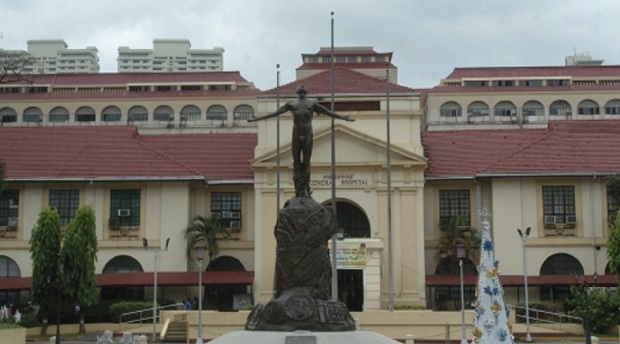Training of trainers for pandemic response held

PGH, one of the COVID-19 referral government hospitals
INQUIRER FILE PHOTO
Philippine Disaster Resilience Foundation (PDRF), the country’s major private sector vehicle and coordinator for disaster management, conducted a coronavirus (COVID-19) training of trainers for Philippine health workers to help boost pandemic response expertise.
Aside from building the pandemic response capabilities of the participants, the program seeks to quickly build a cadre of competent instructors who can teach other health workers in their respective localities and communities.
The training of trainors program was held in partnership with the Center for Human Rights and Humanitarian Studies at Brown University’s Watson Institute and international relief organization Project HOPE.
Almost 90 doctors, nurses, and health professionals from public and private hospitals and organizations across the country took part in the four-day webinar.
“I am hopeful that the webinar helped prepare our medical frontliners for the ongoing global struggle against COVID-19, and that we will be able to look back on this critical time and say that we did everything we could to protect our fellow human beings and save this planet that we love,” PDRF president Butch Meily said in a press statement on Monday.
“We’re all in this together, in this battle against COVID-19, and we believe that this public-private partnership is what is needed to be able to improve our capacity and help contain the spread of the pandemic. By joining this program, participants are now able to act as force multiplier so that more medical professionals and doctors from both public and private hospitals are trained in pandemic preparedness and response,” said PDRF chief resilience officer Guillermo Luz.
Led by Brown University assistant professors of emergency medicine Alexis Kearney, Adam Levine, Adam Aluisio, and John Foggle, the live webinar covered topics such as infection prevention and control, contact tracing, and risk communication and public health messaging – areas that are deemed highly essential in helping the country lessen the prolonged negative impacts of the COVID-19 pandemic.
“The overarching goal of this program is to train participants to become future trainers, and the training that we’ve created is largely based on guidance from WHO (World Health Organization), on standardized guidelines from reputable international organizations, and on the latest and clearest evidence collected to date,” said Brown University’s Center for Human Rights and Humanitarian Studies director Adam Levine.
“It is critical that frontline responders have the skills and knowledge to safely screen and treat COVID-19 patients and prevent the spread of the virus in their workplaces,” said Tom Cotter, director of emergency response and preparedness at Project HOPE. “Partnering with the PDRF enabled our training to reach nearly 90 health professionals countrywide, who are now training other Filipino first responders.”
Participating organizations included: Armed Forces of the Philippines; Department of Education; Philippine National Police; Philippine College of Surgeons (Cancer Commission); Private Hospitals Association of the Philippines; PNP General Hospital; Lung Center of the Philippines; East Avenue Medical Center; Ospital ng Makati; Philippine General Hospital; Quirino Memorial Medical Center; Philippine Heart Center; Dr. Jose N. Rodriguez Memorial Medical Center; Quirino Memorial Medical Center; Philippine Children’s Medical Center; Manila Medical Center; AC Health; Qualimed Health Network; Diliman Doctors Hospital; UST Hospital; The Medical City; Makati Medical City Foundation; Makati Medical Center; Cardinal Santos Medical Center; Our Lady of Lourdes Hospital; Mariano Marcos Memorial Hospital and Medical Center; Dagupan Doctors Villaflor Memorial Hospital; Virgen Milagrosa Medical Center; Sto. Rosio Hospital; Batangas Medical Center; Sto. Rosario Hospital; PNP Crime Lab MIMAROPA; Bicol Regional Training and Teaching Hospital; Mother Seton Hospital (Naga City); Corazon Locsin Montelibano Memorial Hospital; Dr. Arturo P. Pingoy Medical Center; Amai Pakpak Medical Center; City Health Office – General Santos LGU; Cotabato Sanitarium; CARAGA Regional Hospital; PNP Regional Health Service Cordillera; and PNP/Camp Bado Dangwa Hospital.
